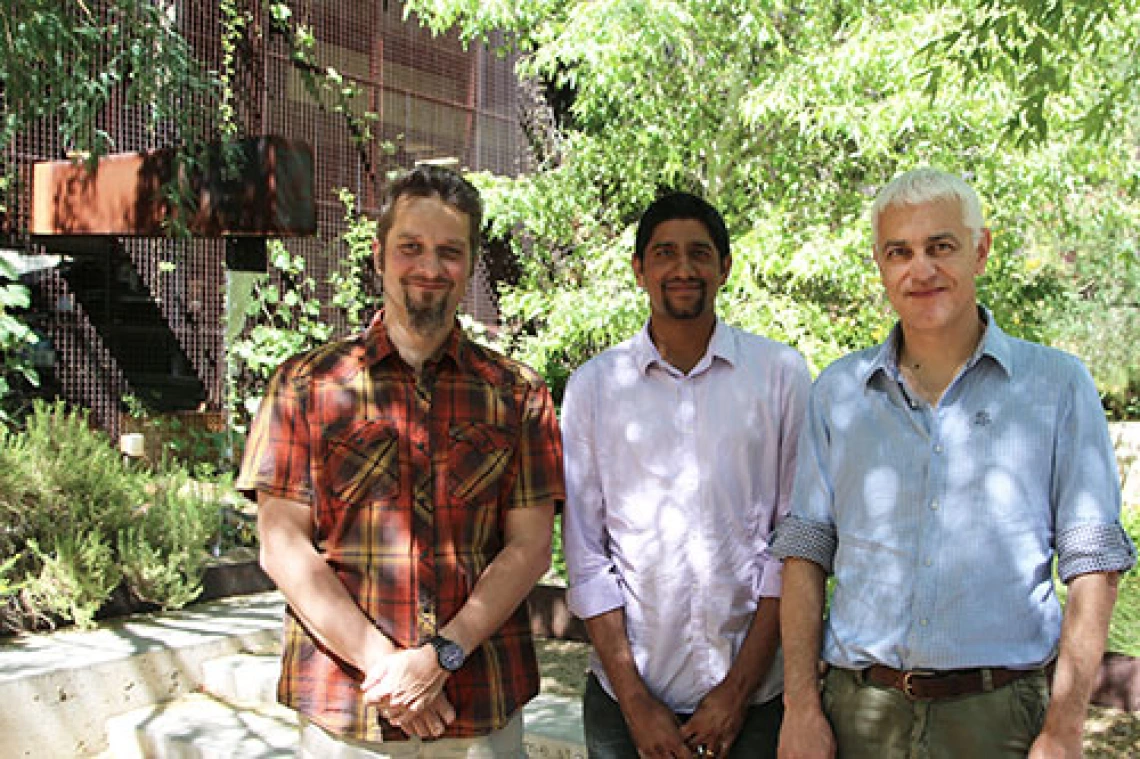Start-up Codelucida to Clean Up Computer Memory

The Codelucida Team: David Declercq, Shiva Planjery and Bane Vasić (Photo credit: Tech Launch Arizona)
New Company Brings Game-changing Error Correction Technology to Solid State Drive Industry
Tucson, AZ – With the big data industry booming and technology companies incorporating flash memory into all kinds of devices, the demand for reliable, solid-state memory is growing at an exponential rate. Codelucida, a new start-up company based on a technology developed in the Department of Electrical and Computer Engineering at the University of Arizona and the University of Cergy-Pontoise in France, aims to bring new levels of accuracy and efficiency to these solid-state drives (SSDs).
To bring their invention to market, the inventors worked with Tech Launch Arizona, the UA unit that advances academic discoveries, developing them into intellectual property, inventions and marketable technologies.
“The technology we’re developing is relating to decoders and how you retrieve information on SSDs,” explains Bane Vasić, Ph.D., co-inventor and UA professor of electrical and computer engineering. “As errors happen, you not only need an algorithm to correct them, but you need that software to be energy- and space-efficient, so it will fit on chips for mobile devices.”
Codelucida’s technology represents a new class of what are called finite precision multilevel decoders for low-density parity-check codes. In essence, the software technology ensures highly efficient error correction and communication between computer chips.
Manufacturers of computers, tablets, cell phones, cameras and USB drives – any flash memory-based device – need such technology. But companies for whom data storage is a central function – for example, large cloud computing service providers who use enterprise servers – need correction technology as well as they grow their data centers and move from existing to new forms of storage.
The market for this breed of memory in which the Codelucida technology will be applied, known as NAND flash memory, has grown from $370M in 2000 to an estimated $23.6B in 2013 and is expected to reach $30.8B by the end of 2016, according to a leading industry market source.
The inventor team includes three current and former researchers from the UA and one from a French university. Dr. Shiva Planjery, who was a student in Dr. Vasić’s lab before graduating in August 2013, focused his doctoral work on this technology. Co-inventors include Dr. Vasić, Dr. Shashi Kiran Chalappagari, also one of Dr. Vasić’s graduate students, and Dr. David Declercq of the University of Cergy-Pontoise.
The UA has a technology management agreement and dual-degree graduate program with the University of Cergy-Pontoise, whereby Professors Vasić and Declercq have been collaborating for a number of years. Under the agreement, both the UA and the University of Cergy-Pontoise are co-owners of the technology, which has been licensed to the new company.

